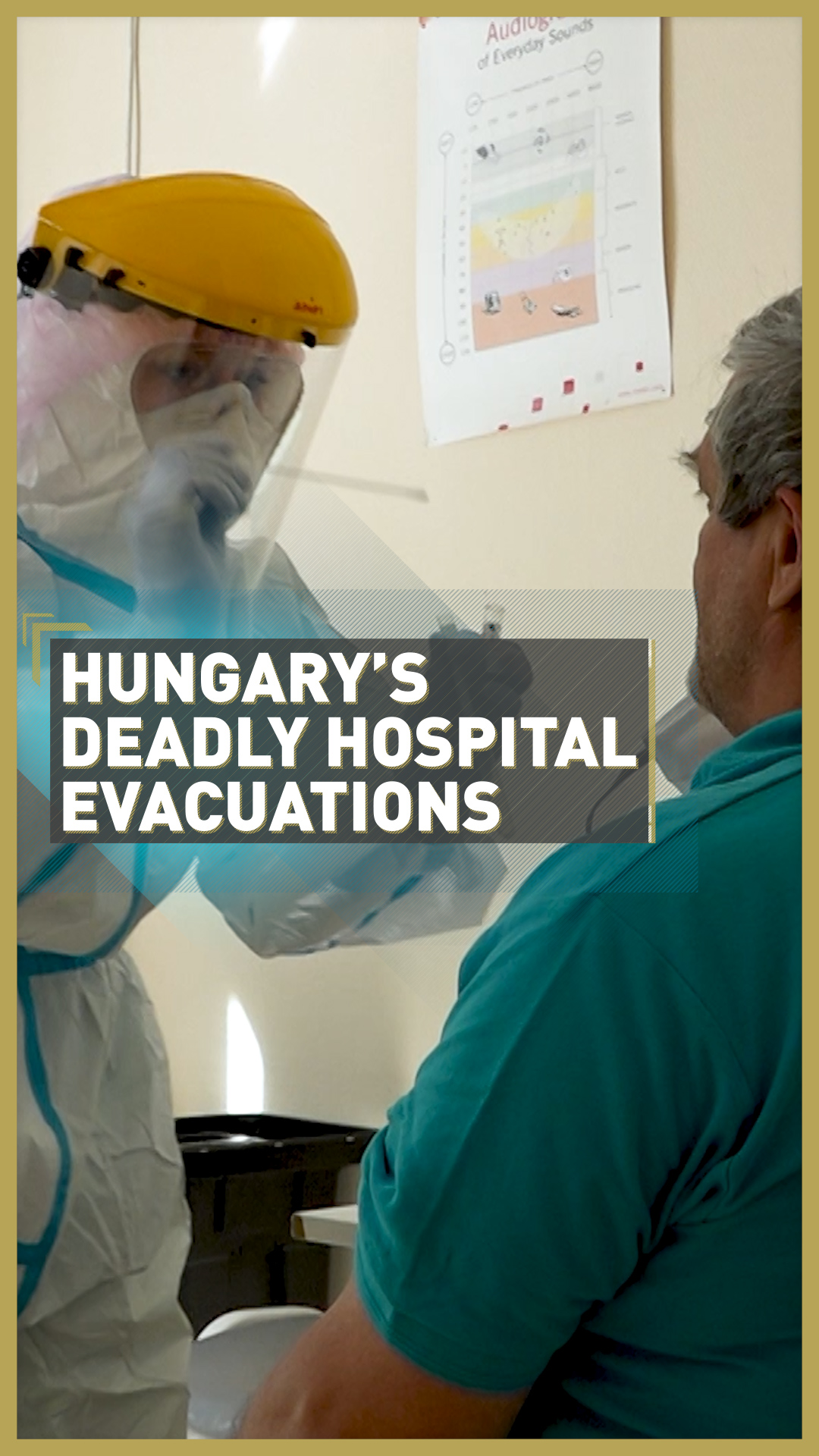03:58

As Budapest, the epicenter of the COVID-19 crisis in Hungary, emerges from two months of restrictions, the government is facing criticism within the country over it's response to the pandemic.
Prime Minister Viktor Orban has declared victory over the coronavirus but is now coming under fire from opposition MPs who say the outbreak has highlighted long-standing problems with the country's healthcare system and exposed the government's weaknesses.

Lilla Szeleczki' s mother is an 80-year-old with dementia, chronic pneumonia and a kidney tumor and was sent home from hospital. /CGTN Europe
Lilla Szeleczki' s mother is an 80-year-old with dementia, chronic pneumonia and a kidney tumor and was sent home from hospital. /CGTN Europe
Lilla Szeleczki's mother was one of many affected by a controversial government order that forced hospitals to quickly free up thousands of beds for COVID-19 patients.
The 80-year-old with dementia, chronic pneumonia and a kidney tumor was sent home from hospital with less than a day's notice.
She was too weak to move from her bed, wash or drink without assistance and was in diapers.
An ambulance dropped her at Szeleczki's home, where she said it was a struggle to carry her to the fourth floor and into the small apartment.
Read more: Italy COVID-19 death toll higher than official figures, says report

The only medical support Lilla Szeleczki's mother received was from the ambulance worker working as a volunteer nurse. /CGTN Europe
The only medical support Lilla Szeleczki's mother received was from the ambulance worker working as a volunteer nurse. /CGTN Europe
"We didn't know what kinds of medication she needed, or how to treat her. We knew nothing at all," Szeleczki said.
Szeleczki had to resort to searching online to find out how to administer injections, and what kinds of painkillers her mother needed "she suffered a lot during these six days. She couldn't sleep, drink, or eat."
Szeleczki's only medical support was from ambulance worker Athina Nemeth who had assumed the role of volunteer nurse, taking on 10 patients who were forced from their hospital beds.
"The families thanked me very, very much. It was heartbreaking - they all cried because they got help from nobody else but me," Nemeth said.
Nemeth has moved her ambulance shifts to nights, so she can help patients and their families during the day. Nine out of 10 patients Athina Nemeth tried to help, died. Szeleczki's mother was one of them.

Ambulance worker Athina Nemeth took on 10 patients who were forced from their hospital beds, nine of whom died. /CGTN Europe
Ambulance worker Athina Nemeth took on 10 patients who were forced from their hospital beds, nine of whom died. /CGTN Europe
"She got back to the hospital on April 21 and we were informed that she passed away the next day," Szeleczki said. "This whole thing was so inhumane."
In April the Government ordered 36,000 beds to be emptied in just eight days, saying it needed to be prepared for the worst-case scenario.
But health experts were left baffled by the decision, which didn't seem proportionate to the number of people affected. There have been fewer than 500 deaths from COVID-19 in Hungary, and under 4000 cases.
Viktor Orban claims Hungary's early implementation of social restrictions helped prevent widespread infection and death.
"In Hungary, we have 36.8 officially infected people among every 100,000 - with this figure we are in rather a good position compared not only to the surrounding countries in Europe, but also in the wider circle," Surgeon General of Hungary Cecilia Muller said at the coronavirus task force's daily press conference.
Read more: UK tests reveal 17% of Londoners have COVID-19 antibodies

The government of Hungarian Prime Minister Viktor Orban has reported 36.8 officially infected people among every 100,000. /Andrej Isakovic / AFP
The government of Hungarian Prime Minister Viktor Orban has reported 36.8 officially infected people among every 100,000. /Andrej Isakovic / AFP
But for many Hungarians, concerns are growing.
A poll conducted by an independent Budapest thinktank just before the coronavirus outbreak found almost 60 percent of respondents - including nearly half of pro-government voters - said the healthcare system had worsened in the last decade.
Waning government support has been welcomed by Hungary's newly emboldened opposition parties, which for years have been fragmented and ineffectual.
"The pandemic clearly showed that there is no expertise in the government anymore, and the government's decisions are always based on political motivations, and not regarding the people and the wellbeing of the people," Richard Barabas, a spokesman for the Dialogue for Hungary Party, said.
Szeleczki says her mother deserved to end her life with dignity: "You just can't imagine how much she wailed out of pain and fear. We just couldn't help, all you feel is frustration.
"We are not angry with anyone and we don't blame them but an apology would be appropriate at least."
A month on from her mother's death, Szeleczki is still waiting to bury her due to a weeks-long delay in obtaining a death certificate from the hospital.
Check out The Pandemic Playbook, CGTN Europe's major investigation into the lessons learned from COVID-19